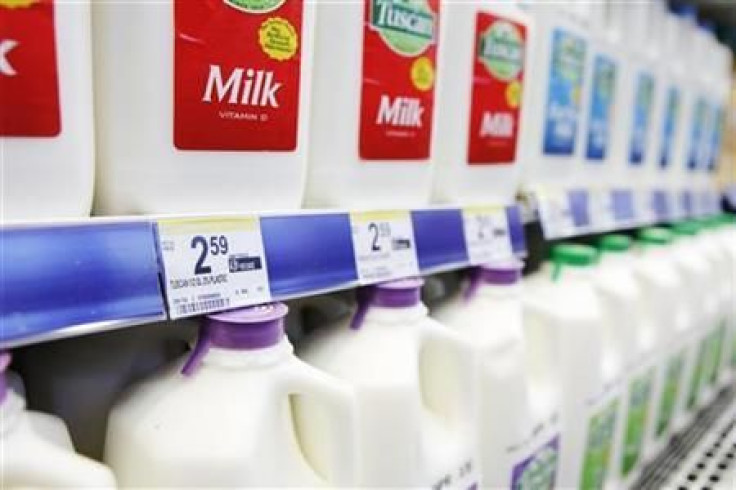New Zealand Dairy Exporter Fonterra Reports Declining Profits Due To 'Tough Conditions' In Global Market

Fonterra of New Zealand, the world’s biggest exporter of milk, reported a 16 per cent decline in profits due to volatile global dairy prices. Net profit after tax showed that profits fell to NZ$183 million (AU$178 million).
Following the slide in profits, Fonterra’s sharetrading fund dropped 4 percent to its six-week low to NZ$5.75 as the recently released figures have sparked concerns about the company’s profitability, reports Reuters. Fonterra has expanded aggressively to meet the growing demand for milk products in China and emerging countries.
Fonterra Chairman John Wilson said in a statement that the company’s results in the first-half reflected the tough conditions in the dairy market due to variable demand, production and pricing. The company announced that it would be paying an interim dividend of 10 NZ cents per share as it lowers its full-year dividend guidance to from 25-35 NZ cents to 20-30 NZ cents.
Meanwhile, farmer shareholders of Fonterra were unhappy about the company’s financial results. Fonterra may be facing a crisis of confidence from its suppliers as it shocked the sharemarket and farmers with the announcement of its lower dividend guidance. The dividend monitors how the business is doing and analysts widely expected it to remain steady since milk price is low this season.
Ian Brown, chairman of the Fonterra Shareholders Council, has confirmed that the farmers will soon quit the cooperative. He believes the farmers were trying to put Fonterra on notice. He said any risk to Fonterra’s milk supply is worrying for him. “More importantly, any time farmers’ confidence is undermined it worries me even more because that is longer-term,” declared Brown. He added that some suppliers were loyal and may probably not leave but they were surely disappointed of Fonterra’s financial results.
Stuff.co.nz reports that the sliding profits of Fonterra have been agitating farmer-shareholders. Responding to the shareholders’ demands, Fonterra said in a statement that the incentive of cooperative membership depends on our “collective strength” and ability to provide the best long-term returns. The company reiterated that it values the milk supplied by the farmers of New Zealand.
To report problems or leave feedback on this article, contact: r.su@ibtimes.com.au






